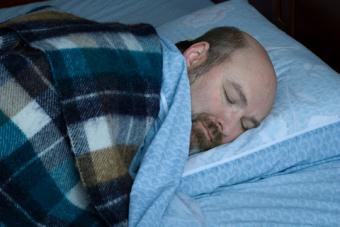
A sleep diary can help you record your circadian rhythms (sleep patterns) and what, if anything is disrupting the sleep pattern. For example, do you fall asleep constantly while watching television, but you have no problems with staying awake while sitting up at the computer? Do you drink coffee regularly during weekday evenings, but not on the weekend? Are there patterns between your behavioral choices and your ability to go to sleep?
Keep a Sleep Diary
Your body is affected by the exterior light. It is very typical for people to go to bed earlier in winter than they do in summer time. Why? Because the days are longer in the summer than they are in the winter; so, if the sun can change your sleep patterns, what else can? This is why you keep a sleep diary. So you can find out.
How To Keep A Sleep Diary
You can create a sleep diary from any journal, a notepad or on sheets you print out from your computer. Many sleep sites offer sleep diary pages (i.e. Web MD's Sleep Diary) that you can print out and put in a binder. Each one makes different suggestions on how to track your sleep and behavior patterns. Your physician may also make specific requests for information he or she wants you to record. Otherwise, standard data you should make note of in the sleep diary includes:
- The date, the day and the type of day it is (i.e. February 25, 2009, Wednesday, Workday)
- Stimulant intake (i.e. soda, coffee, Nodoz) and when you took it or drank it
- Exercise, type of exercise, the duration of exercise and time of day you exercised
- Time you go to bed, what your bedtime rituals are
- Time you fell asleep (for most people this noted the following day when you can record the last time you looked at the clock)
- Any anomalies - such as waking up to go to the bathroom, waking up, what disturbed you, etc.
Keeping an accurate sleep diary can help your physician diagnose a possible sleep disorder, pinpoint environmental factors affecting your sleep and provide you with recommendations on how to improve the quality of your sleep.
Who Should Keep a Sleep Diary
Don't confuse a sleep diary with a dream diary, the latter is used to record your dreams. Recording dream information in a sleep diary is unnecessary unless night terrors and nightmares disturb your sleep. If you experience any of the following for two or more weeks then you should consider a sleep diary:
- Severe daytime fatigue
- Persistent headaches upon waking
- Difficulty waking without an alarm clock
- Difficulty falling asleep
Use for a Doctor Appointment
If you suspect that you may be suffering from a sleep disorder, record your sleep patterns and information about your sleep problems in a sleep diary. Make an appointment with your physician and bring your sleep diary in for the physician to review. Recording this information can help you answer the doctor's questions accurately and remember details you might otherwise forget.







